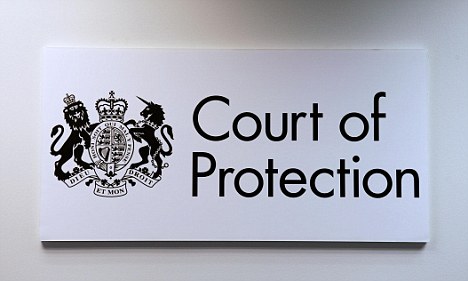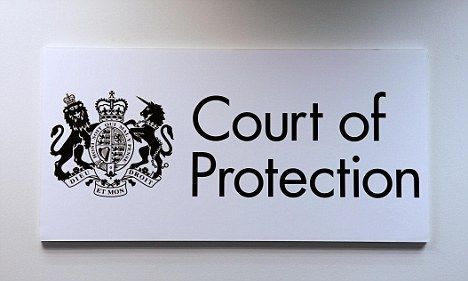
Delusional but autonomous
A British man chooses to die rather than lose his leg.

Can a confused, lonely, bi-polar, sick 73-year-old with religious delusions refuse an operation which will save his life?
Yes, says the UK’s Court of Protection. A man known as Mr B is a diabetic with a severely infected leg. His life can only be saved if it is amputated below the knee, according to the best medical advice. Without this, he will die of the infection, possibly within a few days. Mr B has no one else in the world to care for him. “He has no next of kin. No one has ever visited him in hospital and no one ever will,” observes the judge.
In the opinion of the judge he does not have the mental capacity to make a rational decisions about his illness. On the other hand, Mr B, who is not afraid of dying and bears his pain with great fortitude, does not agree with the doctors:
“I don’t want an operation. I’m not afraid of dying, I know where I’m going. The angels have told me I am going to heaven. I have no regrets. It would be a better life than this. I don’t want to go into a nursing home, [my partner] died there. I don’t want my leg tampered with. I know the seriousness, I just want them to continue what they’re doing. I don’t want it. I’m not afraid of death. I don’t want interference. Even if I’m going to die, I don’t want the operation.”.
The next question, then, is what is in Mr Bs “best interests”. A person in full possession of his faculties would probably answer “amputation”. But the judge points out that
“Mr B’s mental health and well-being will be further compromised following an operation. Even if he does not suffer some of the risks of amputation (phantom pain etc.), the loss of his foot will be a continual reminder that his wishes were not respected. Further to that, his religious sentiments will undoubtedly continue and he will believe that the amputation was carried out against the Lord’s wishes.”
On the balance, the judge therefore decided that Mr B’s best interests were to do what he wanted rather than what was good for him. His right to autonomy trumps his right to health.
“I am quite sure that it would not be in Mr B’s best interests to take away his little remaining independence and dignity in order to replace it with a future for which he understandably has no appetite and which could only be achieved after a traumatic and uncertain struggle that he and no one else would have to endure. There is a difference between fighting on someone’s behalf and just fighting them. Enforcing treatment in this case would surely be the latter.”
There is no information about what happened to Mr B. Presumably he joined his angels within a few days after the judgement was handed down.
https://www.bioedge.org/images/2008images/TH_court_of_protection.jpg
Creative commons
https://www.bioedge.org/images/2008images/CourtofProtect_zpsbb3fc93e.jpg
autonomy
informed consent
mental illness
UK
